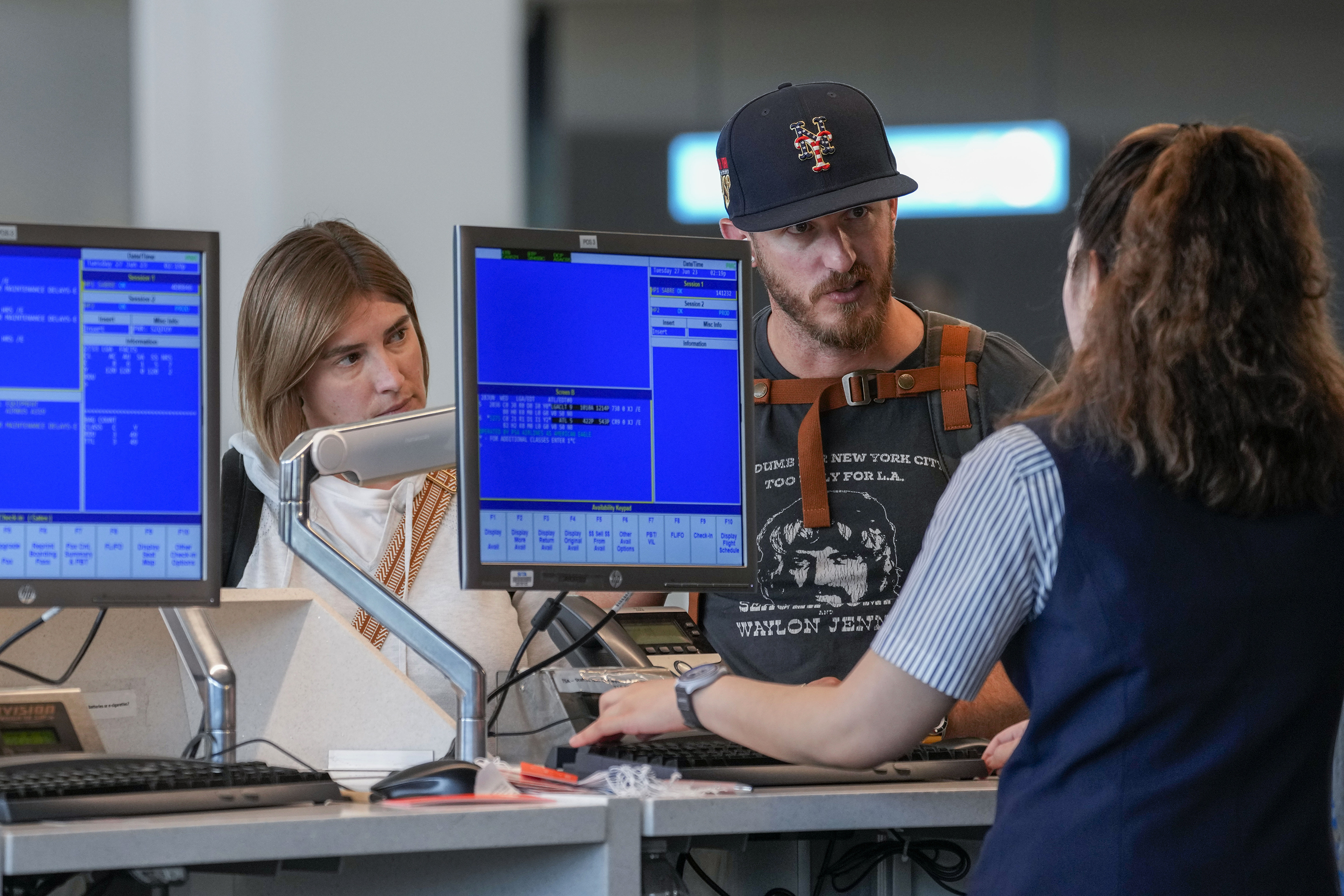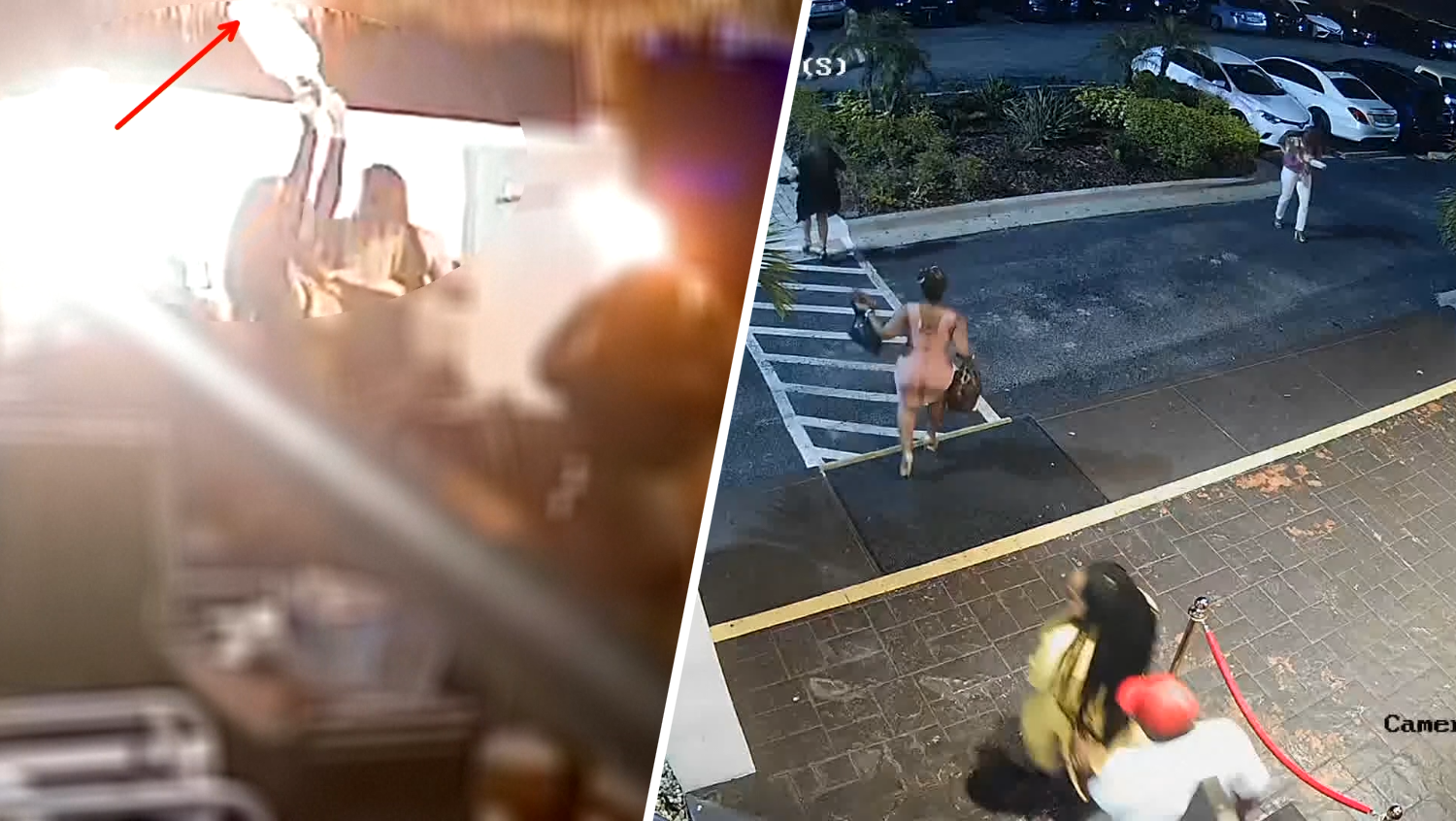The blood has been mopped up, the grenade-scarred marble replaced, the bullet holes covered over.
But the reopening Sunday of parts of the iconic Taj Mahal hotel — less than a month after militants stormed the building, spraying staff and guests with gunfire and grenades — comes with more than just a new plaster and paint job. There are new security measures and officials promise a new type of luxury hotel: an "invisible fortress" that can protect guests as well as pamper them.
"We can be hurt, but we will never fall," a defiant Ratan Tata, chairman of Taj owner Tata Group, said as guests checked into Taj tower for the first time since the Nov. 26 attacks.
The Trident portion of the Oberoi hotel complex also reopened on Sunday, though the main areas of both luxury hotels are expected to stay closed for months. But with the holidays approaching, the two landmarks rushed to woo guests back.
Police manned barricades outside the Taj Sunday night while armed, undercover guards kept watch inside. Everyone walking into the lobby was asked for proof of their hotel reservation. Visitors handed their bags over for inspection and walked through metal detectors as their luggage was scanned through X-ray screening machines.
Among those checking in was a Californian who survived the attacks. During the siege, Deepak Dutta, 50, said he spent 24 hours locked in his room — praying — before being rescued.
Dutta said he checked into the very same room Sunday "to show the terrorists that our spirit cannot be shaken."
U.S. & World
"The Taj is like a second home to me and the staff members are like my family," he said. "I'm happy that the Taj is back in action."
The majestic Taj Mahal — an icon of Indian pride and a playground for the global elite for over a century — and the sleek, sea-front Oberoi were among 10 sites targeted in the rampage. At the end of the militants' 60-hour standoff with police, 164 people and nine gunmen were dead, including dozens of guests and staff members from the two hotels.
At the Oberoi complex's Trident hotel, a Hindu priest chanted prayers and a Muslim cleric read from the Quran on Sunday. Hotel staff in ivory saris greeted guests with flowers. Candles flickered in the lobby.
A German tourist said she was going ahead with her vacation plans despite the attacks.
"All over the world such things are happening. You can have an accident even at home. Therefore we were not afraid to come to India," she said, only giving her first name, Angelika.
At the Taj Mahal, hotel officials unveiled a memorial for the 31 staff and guests who died in the three-day siege. The Tree of Life is based on a 6-foot- (2-meter-) tall bronze sculpture that originally stood beneath the dome — and survived the siege unharmed.
A pianist played in the lobby, as guests were welcomed with traditional marigold garlands. Some received the red "tilak" dab typically rubbed on forehands during prayer ceremonies. The tower's five restaurants were fully booked, with waiting lists.
"There is still much work to do, but we are all determined to rebuild the Taj brick by brick until it outshines even its former glories," Tata said.
But beyond the cosmetic renovations, R.K. Krishna Kumar said he and his colleagues have set out to reconstruct a hotel for a new age — one capable of withstanding another militant attack while still indulging guests.
"A world-class hotel needs to be an invisible fortress," said Kumar, vice chairman of Indian Hotels Co. Ltd., a subsidiary of Tata Group, the Taj's owner. "There is a new phase as far as the hotel industry is concerned."
Restoration of the entire complex should be done by the first quarter of 2010, he said.
An international security firm is helping upgrade security and hotel staff are working closely with police. The company also has urged the government to create a new, elite terror team within the police corps.
The Mumbai attacks exposed glaring gaps in India's security and intelligence apparatus, and many criticized the government for not being better prepared for the attacks.
"People do not need to worry about security. The state administration and the police would put in all efforts to prevent terror attacks," Maharashtra Chief Minister Ashok Chavan said, according to the Press Trust of India news agency.
Thirty-one people — including a dozen hotel employees — were killed inside the Taj as friends and family looked on.
Staffers who showed up for their 10 p.m. shift on Nov. 26 instead spent that night huddled in the courtyard across from the hotel, trying desperately to guide friends to safety.
"Left. Left. Crawl. Go toward the office," one man said sternly into his phone as the blaze beneath the Taj's historic dome flared up.
A firefighter who removed victims' bodies from the hotel's main kitchen recalled: "The floor was full of blood. It smelled of blood."
All that is gone now.
"You'll see not a trace of what happened," Kumar said. "It's back to business."



